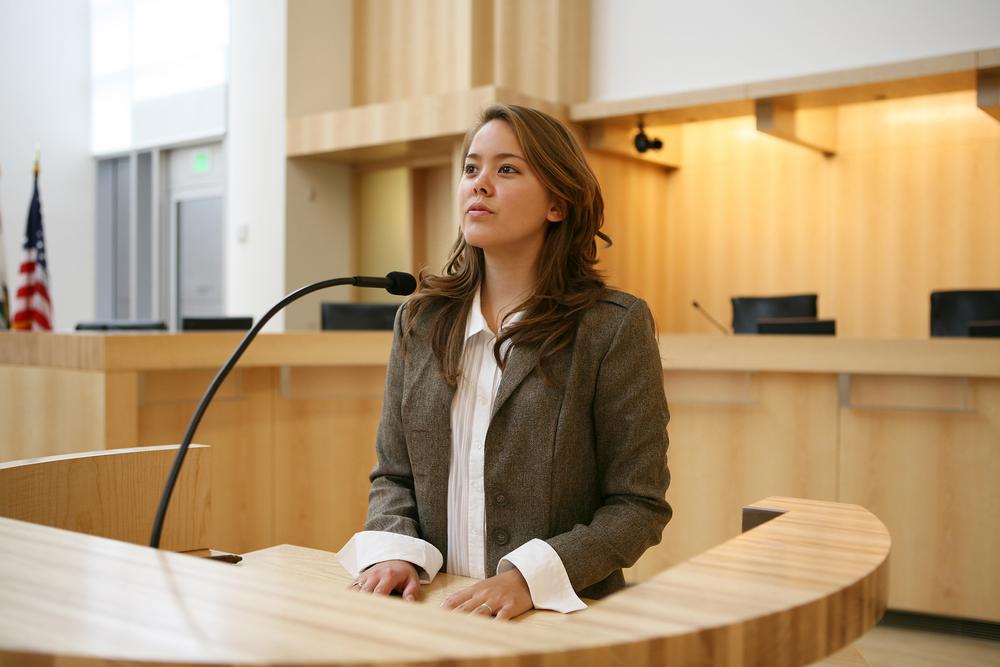Step into the fascinating world of forensic experts—those meticulous detectives of science who translate complex evidence into compelling courtroom stories. Ever wondered how these specialists remain calm under pressure, break down technical jargon into clear testimony, and ultimately sway juries and judges alike? In this article, we’ll journey inside their minds to uncover the skills, strategies, and subtle art behind how forensic experts testify in court. Get ready to satisfy your curiosity about the blend of science, psychology, and communication that makes their courtroom presence so powerful.
Table of Contents
- Understanding the Psychological Challenges Forensic Experts Face in the Courtroom
- Decoding the Art of Clear and Convincing Testimony
- Tips for Forensic Experts to Build Credibility and Communicate Complex Evidence
- How Preparation and Mindset Influence the Impact of Expert Witness Testimony
- In Summary
Understanding the Psychological Challenges Forensic Experts Face in the Courtroom
Every forensic expert stepping into the courtroom must navigate a complex emotional labyrinth, often concealed behind a facade of calm professionalism. The pressure to deliver factual, unbiased testimony can trigger heightened stress levels and cognitive dissonance, particularly when their scientific findings clash with the narratives presented by attorneys. This psychological tension is further amplified by the adversarial nature of legal proceedings, where experts are not only witnesses but also targets of intense scrutiny and cross-examination. The challenge? Maintaining mental clarity while under the spotlight, where even the slightest hesitation or uncertainty can be exploited to undermine credibility.
Beyond the immediate courtroom pressure, forensic experts grapple with ethical dilemmas and the emotional weight of their discoveries. They must reconcile their role as impartial fact-finders with the profound real-world consequences their testimony can stir—for victims, defendants, and society at large. Key psychological hurdles include:
- Managing implicit bias despite rigorous scientific training
- Overcoming the isolation of their specialized knowledge
- Balancing empathy with objective detachment
- Processing trauma from case details without emotional burnout
Understanding these internal battles reveals how forensic experts aren’t just conveyors of data—they are human actors navigating a high-stakes drama that demands both intellectual rigor and emotional resilience.
Decoding the Art of Clear and Convincing Testimony
Mastering clear and convincing testimony involves more than just presenting facts; it’s an intricate balance of storytelling and precision. Forensic experts must distill complex scientific data into digestible narratives that resonate with judges and jurors alike. Their testimony must bridge the gap between technical jargon and everyday understanding, ensuring that the evidence speaks for itself without confusing or overwhelming the courtroom. This requires not only deep knowledge of their field but also an acute awareness of their audience’s perspectives and potential doubts.
Effective forensic testimony hinges on several critical strategies, including:
- Clarity: Using simple language to explain technical points without diluting the meaning.
- Confidence: Presenting findings with assuredness while remaining open to cross-examination.
- Consistency: Keeping statements aligned with written reports and experimental results to build credibility.
- Engagement: Maintaining eye contact and using body language to reinforce trustworthiness.
By weaving these elements together, forensic experts transform raw data into compelling testimony that can decisively influence the outcome of a trial.
Tips for Forensic Experts to Build Credibility and Communicate Complex Evidence
Building trust in the courtroom extends far beyond presenting raw data. Forensic experts must cultivate an aura of reliability and professionalism that resonates with judges and juries alike. This begins with a commitment to transparency—explaining processes in a way that’s both accessible and accurate. Experts who can break down their methodologies without oversimplifying empower the court to make informed decisions. Equally important is mastering the art of humility: acknowledge limitations openly rather than overstating certainty, which reinforces integrity and fosters credibility.
Effective communication also hinges on storytelling. Transforming complex evidence into a compelling narrative helps bridge the gap between science and law. Consider these approaches to sharpen your delivery:
- Use analogies and visuals: They provide clarity where technical jargon falls short.
- Maintain a steady, calm tone: Confidence without arrogance invites trust.
- Anticipate cross-examination: Prepare clear, concise responses for potential challenges.
- Practice active listening: Engage with the lawyer’s questions thoughtfully before answering.
By weaving together expertise with empathy and clarity, forensic experts transform complex data into compelling testimony that truly makes an impact.
How Preparation and Mindset Influence the Impact of Expert Witness Testimony
Behind every compelling expert testimony lies meticulous preparation that goes far beyond reviewing case files. Forensic experts often engage in extensive rehearsals, anticipate cross-examinations, and refine the clarity of their language to ensure complex scientific data is accessible to jurors. This preparation involves a delicate balance — translating technical jargon into everyday terms without diluting the accuracy of the information. A well-prepared expert crafts a narrative that guides the courtroom through the evidence, transforming abstract data into a story that carries undeniable weight.
Equally crucial is the expert’s mindset as they step into the courtroom spotlight. Confidence, composure, and adaptability are key, allowing them to navigate the unpredictable dynamics of legal proceedings. An expert who approaches testimony with an open mind, ready to address challenges and clarify misunderstandings, often leaves a more lasting impression. Key elements that influence this mindset include:
- Emotional detachment to remain objective and credible under pressure
- Clear communication focus to ensure jurors understand without feeling overwhelmed
- Resilience to withstand aggressive cross-examinations and maintain professionalism
In Summary
Peering into the minds of forensic experts reveals a fascinating blend of science, intuition, and communication skill. Their testimony in court is not just about presenting facts—it’s about weaving complex evidence into a story that judges and juries can understand and trust. As we continue to explore this intriguing world, one thing becomes clear: forensic experts don’t just analyze clues—they bring the puzzle to life, guiding justice with every carefully chosen word. Curious to learn more? Stay tuned—there’s always another layer to uncover.












